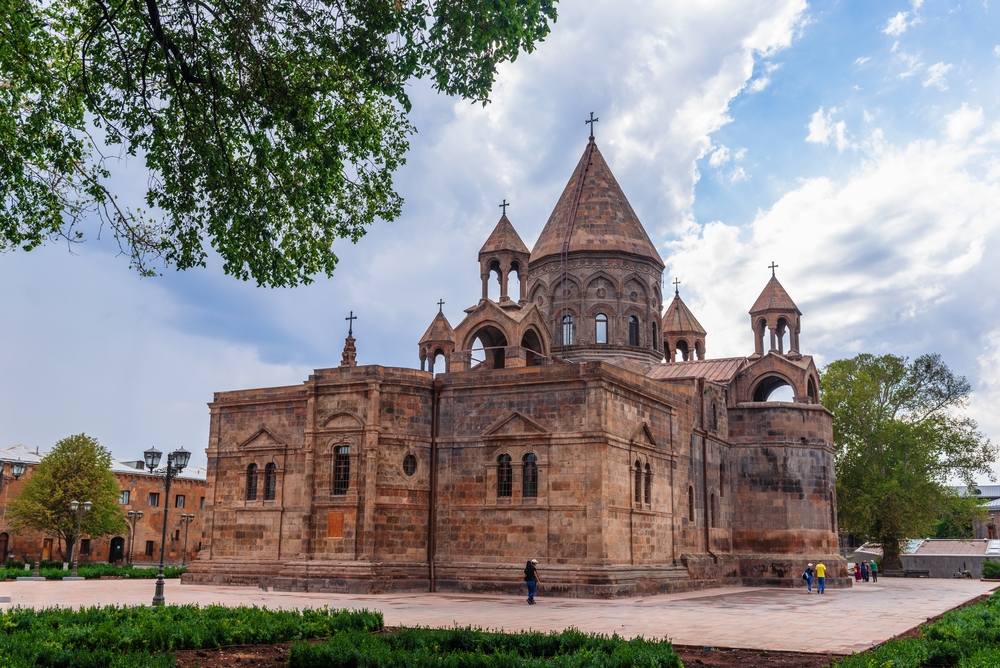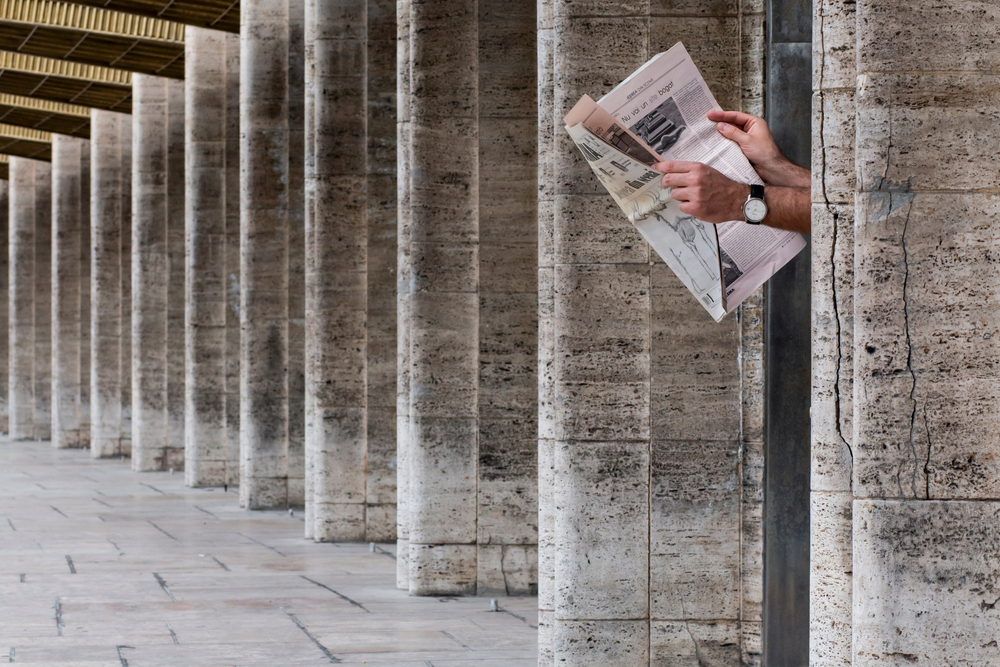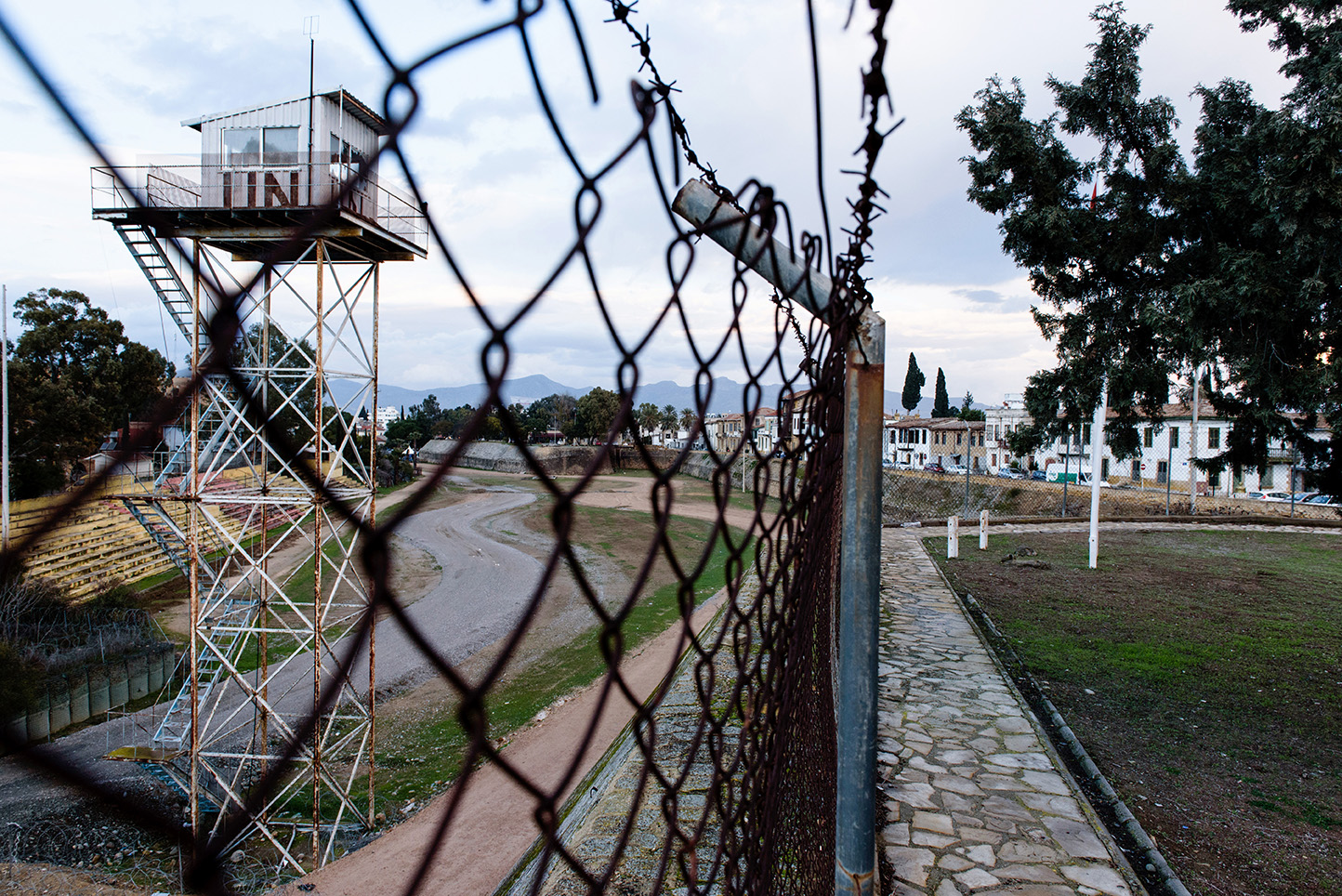Armenian archbishops accused of plotting coup
There is an open conflict between the government and the Armenian Church. The government speaks of a coup and arrests two archbishops and a prominent businessman, while the opposition cries foul denouncing political repression. In the background, the geopolitical balance and negotiation with Azerbaijan

Arcivescovi-armeni-accusati-di-ordire-un-golpe-1
The Cathedral of Echmiadzin - © Vahan Abrahamyan/Shutterstock
With eleven months left before next year’s parliamentary elections, the political environment in the country is more tense than any vote before it. On 25 June, the National Security Service (NSS) detained more than a dozen individuals accused of plotting a coup to oust Prime Minister Pashinyan from power. Days earlier, Russian-Armenian businessman Samuel Karapetyan was detained on the same charge. Among the latest wave of arrests was Archbishop Bagrat Galstanyan, the revanchist cleric who last year led protests against Pashinyan.
The NSS revealed that weapons and even a 7-page schedule for overthrowing the government were found though it was initially published by a pro-Pashinyan site just a day beforehand. The same document was also visible among the collection of items seized by the NSS. The government and its supporters had claimed that the alleged coup was imminent but the version in a photograph released by the NSS was dated to be implemented from late June to late September last year. That part had been clumsily obscured by a strip of paper by pro-Pashinyan media.
Audio recordings of Galstanyan discussing the alleged plan were also released. Several of Pashinyan’s parliamentary deputies claimed that Galstanyan admitted the voice was his but the cleric denies the charge. It will be up to digital forensics to assess the recording that contained threats of violence and assassinations.
It is also claimed that former presidents Robert Kocharyan and Serzh Sargsyan, oligarchs Gagik Tsarukyan and Samvel Alexanyan, and the Karabakh Armenians where listed as human resources to count on. Explosives, weapons and ammunition were listed as available, plans for civil disobedience and violent actions to be instigated by groups of a combined force of several hundred former servicemen would be tasked with creating an “uncontrollable situation.”
Galstanyan was sentenced to two months pre-trial detention. He was soon joined by another renegade archbishop in what increasingly looks like a pre-planned operation to silence the Armenian Apostolic Church before next year’s vote. Both the parliamentary opposition and the clergy are vehemently opposed to any talk of normalising relations with Azerbaijan and Turkiye. For Pashinyan, doing so with the full support of the European Union might be the only way he can ensure re-election amid falling ratings.
On 30 June, another senior cleric was detained on suspicion of planning a coup. Archbishop Mikayel Ajapahyan, was also placed in two month’s pre-trial detention, apparently because of comments he made calling for a military coup. At the time, the NSS did not take any action against Ajapahyan for such statements, leading critics to again claim that the charges now are being used to target key figures likely to later mobilise Pashinyan’s opponents on the streets.
Like Galstanyan, Ajapahyan also led protests against Pashinyan last year. This time, late last month, law enforcement entered the grounds of the Holy See of Etchmiadzin, seat of the Armenian Apostolic Church. Hundreds of adherents prevented Ajapahyan from being taken into custody. He later traveled to Yerevan to present himself in person.
Pashinyan conducted his own campaign against the cleric but announced that he would tone down his language from 1 July. Facebook had already deleted one of his posts for violating community standards.
Russian Foreign Minister Sergei Lavrov expressed concerns about developments in Armenia but his counterpart, Ararat Mirzoyan, responded by instructing him to stay out of the country’s domestic affairs. Mirzoyan insists that the actions being taken against the two archbishops, as well as the Catholicos who Pashinyan claims has had at least one child out of wedlock. Karekin II, a celibate figurehead, has been told by Pashinyan he must leave the position.
In contrast, the European Union has refrained from commenting on what many consider to be a crackdown on the opposition. The EU’s High Representative, Kaja Kallas, said nothing when she visited Armenia at the very end of June.
French President Emmanuel Macron did, however, publicly offer his support to Pashinyan in the face of what he claimed to be an attempt to destabilise Armenia. Meanwhile, the opposition continues to claim that the crackdown is intended to appease Azerbaijan and Turkiye.
Pashinyan continues to maintain that he hopes to sign a peace deal between Armenia and Azerbaijan by the end of the year. In recent months, Pashinyan has made it clear that he hopes Brussels and Washington will pressure or convince Turkiye to open its borders with Armenia so that Azerbaijan will drop its demand that Yerevan first changes the country’s constitution.









